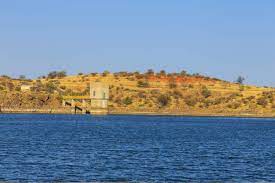Water and energy projects in Ethiopia are expected to get a shot in the arm of the government of Denmark. Recently, the latter signed an agreement dubbed Danish-Ethiopia Energy Partnership (DEEP) in Ethiopia with the East African country counterpart. Under the DEEP the Danish government will provide $10 Million that will go towards the implementation of the first phase of the Ethiopian Danish Strategic Water Sector Cooperation (Water SSC).
The DEEP will be implemented through Ethiopia’s Ministry of Water and Energy alongside state-owned electricity companies Ethiopian Electric Power. Additionally, Ethiopian Electric Power will be responsible for power generation and transmission while Ethiopian Electric Utility be responsible for distribution.
According to the Ministry, it “is aimed at undertaking energy modelling and planning as an important tool in creating a clean, stable and secure energy supply, and strengthening the integration of variable renewable energy.”
Also Read: Construction commence on Ethiopian water supply project
Importance of the Danish-Ethiopia Energy Partnership (DEEP) in Ethiopia
The WATER SSC project aims to increase clean water services access across the cities of Hawassa and Dire Dawa. Additionally, these areas struggle with water shortages caused by urbanization, population growth and water over-extraction from industrial and agricultural use.
The investment will increase both energy and water access across the country on the back of bilateral cooperation. “Great cooperation will continue and expand,” Denmark’s Ambassador to Ethiopia Kira Sindbjerg shared.
The project will ease the pressure on Egypt’s unresolving wrangles with Ethiopia. This project will serve as leverage against the threat of worsening relations between Ethiopia and Egypt. Noteworthy, the two downstream countries are in consequently increased regional instability due to the water supply projects on the river Nile. However, with this project in the picture, the tension may be resolved since not much water will be harvested in the GERD dam.
Additionally, the project will develop many job opportunities both directly and indirectly for the locals of Hawassa and Dawa. Moreover, this will aid in uplifting their livelihoods and boost the country’s economy in the long run.

Leave a Reply